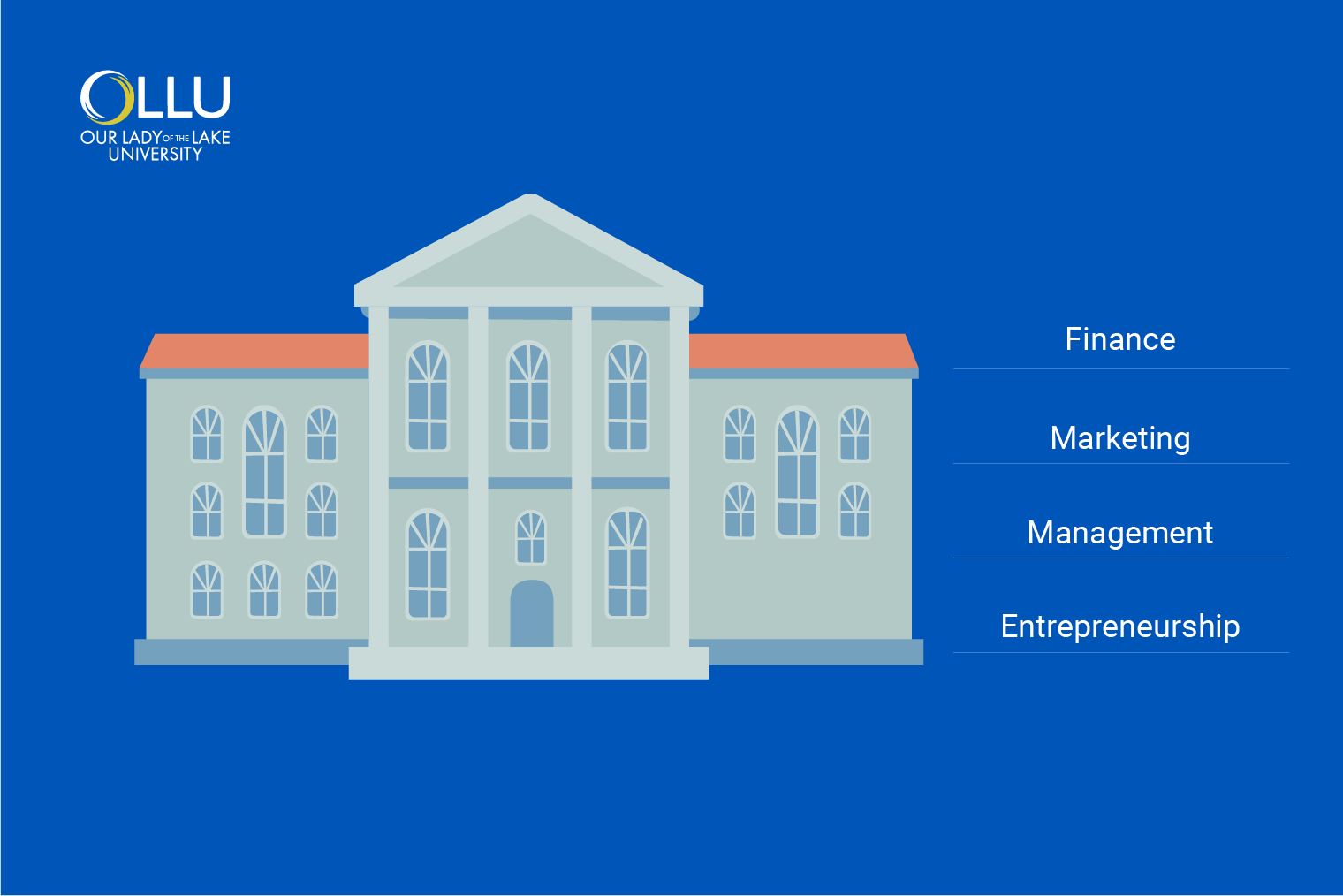Why Get an MBA? Unlocking Opportunities
May 28, 2024

In today's competitive professional landscape, pursuing an MBA can be a transformative
step for many. This degree equips individuals with vital skills in management, leadership,
finance, and strategic thinking, making them valuable assets in any business environment.
But as with many academic degrees, professionals often wonder, “Why get an MBA?”
Well, we’re here to tell you. In this blog post, we focus on the skills acquired with an MBA degree that make this program worth it. Follow along as you unlock a key tool for career advancement: the MBA!
What Is an MBA?
An MBA degree, or Master of Business Administration, is a graduate degree focusing on business management. The program typically covers topics like finance, marketing, human resources, and operations with the aim of developing critical skills in leadership, decision-making, and strategic thinking.
Students learn to analyze complex business issues, make strategic decisions, and lead organizations effectively. The curriculum often includes case studies, group projects, and internships to apply theoretical knowledge in real-world scenarios. Overall, an MBA prepares students for leadership roles in various industries by enhancing their managerial and business skills.
Why Get an MBA?
Individuals pursue an MBA for several reasons. Many aim to advance their careers, seeking higher positions and increased salaries in the business world. Others want to expand their knowledge and skills, especially in leadership and strategic decision-making, to be more effective in their roles.
An MBA also offers networking opportunities, connecting students with professionals, alums, and potential employers. Some people choose this degree to change their career path entirely, entering new industries or starting their own businesses. Additionally, pursuing an MBA can also be a personal goal, fulfilling aspirations of personal growth and achievement.
Benefits of an MBA
Signing up for an MBA can significantly impact individuals’ careers and professional development. Some benefits include career advancement, high salary income, diverse skills acquisition and numerous opportunities for networking. Let’s take a closer look at each one.
1. Career Advancement
An MBA can significantly boost your career by opening doors to promotions and leadership roles. With the advanced skills and knowledge gained from an MBA, graduates are often considered for higher-level positions within their organizations.
This degree also provides a comprehensive understanding of business operations, making graduates valuable candidates for managerial and executive roles. An MBA also allows individuals to transition into specialized fields like consulting or finance, offering a broader range of career opportunities.
2. Increased Earning Potential
Earning an MBA often leads to higher salaries and increased earning potential. Graduates with an MBA typically qualify for higher-level management and executive positions, which come with significantly larger paychecks compared to positions available to those without an MBA.
On average, an MBA graduate can expect up to $125,000 annual salary. This figure surpasses industry hires because employers value the advanced business skills, leadership abilities, and strategic insight that MBA holders possess, making them highly sought after.
The MBA curriculum also includes skills like negotiation and financial management, which can further enhance a graduate’s ability to secure better compensation and bonuses.
3. Expanded Skill Set
A crucial benefit of this degree is the diverse skills acquired that serve graduates for various challenges in the business world. They gain expertise in finance, learning to manage budgets and investments wisely.
Marketing skills help them understand market trends and customer behavior, which are crucial for driving business growth. Operations knowledge allows them to optimize processes and enhance efficiency. Strategic skills enable them to make informed decisions and plan long-term objectives effectively.
Lastly, leadership training prepares them to motivate teams, manage conflict, and lead organizations successfully. This wide range of skills makes MBA graduates versatile and valuable in many professional roles.
4. Networking Opportunities
As mentioned, MBA programs offer excellent networking opportunities, allowing students to connect with classmates, alums, and industry professionals. These connections are valuable as they can lead to job opportunities, partnerships, and valuable advice on career growth.
Classmates often come from diverse backgrounds, providing a wide range of perspectives and experiences. Alum networks extend globally, offering support and resources long after graduation. Additionally, interacting with industry professionals during the program can open doors to internships and employment in leading companies.
5. Entrepreneurial Skills
An MBA equips individuals with essential skills and knowledge to start and manage their own businesses successfully. The program teaches business planning, helping entrepreneurs map out their business goals and the steps to achieve them. It covers finance, crucial for budget management, funding strategies, and understanding financial statements.
These skills combined prepare MBA graduates to handle the challenges of entrepreneurship, from initial planning to daily operations and scaling their businesses, enhancing their chances of success in the competitive business landscape.
Specializations in MBA Programs

MBA programs offer a variety of specializations or concentrations to suit different
career interests and goals. Some popular options include:
- Finance: Where students learn about investments and financial strategies;
- Marketing: Focusing on consumer behavior and brand management;
- Management: Which prepares students for leadership roles and managerial settings; and
- Entrepreneurship: Where students learn to start and grow their own businesses.
These concentrations allow students to tailor their education to specific industries or fields, enhancing their expertise and job prospects in those areas.
OLLU's Business Administration (MBA) degree covers all of the above, offering aspiring professionals the chance to study while balancing work and family life. Our program is accredited by the Accreditation Council for Business Schools and Programs (ACBSP) and offers courses such as:
- Introduction to Business Analytics
- International Management
- Operations Strategy and Supply Chain Management
- Effectual Entrepreneurship
- Marketing Today
The program is spread across three to four semesters and features up to 10 students per year, which allows for face-to-face interaction and productive learning sessions.
Is an MBA Worth It?
Deciding whether pursuing an MBA is worth the investment depends on factors like cost, time commitment, career goals, and personal circumstances. MBAs can be expensive and require significant time, often two years. However, they can lead to higher salaries, better career opportunities, and valuable networks.
An MBA might be beneficial if you aim for a leadership role or a significant career shift. But, if the cost or time is a concern, or your career doesn’t require an MBA, it might not be necessary. Carefully consider your career goals and resources to determine if an MBA aligns with your aspirations.
Bottom Line
In essence, an MBA degree offers numerous benefits, including career advancement, higher earning potential, and a broadened skill set in areas like finance, marketing, and strategic management. It also provides valuable networking opportunities with peers, alums, and industry professionals, enhancing career and business prospects.
For those interested in entrepreneurship, an MBA delivers essential skills for starting and running a successful business. Despite the cost and time commitment, an MBA's diverse advantages and opportunities make it a worthwhile investment for many aspiring to elevate their professional lives.
Frequently Asked Questions (FAQs):
Why would someone pursue an MBA?
Someone might pursue an MBA to advance their career, increase their earning potential, develop a broad set of business-related skills, and expand their professional network.
Is an MBA worth it after 30?
Pursuing an MBA after 30 can be worth it if it aligns with your career goals, such as moving into higher management roles, changing industries, or enhancing specific business skills.
Which MBA has the highest salary?
MBAs specializing in Strategy, Consulting, and Finance often lead to the highest salaries, with graduates frequently securing well-paying roles in management consulting, investment banking, and strategic management.